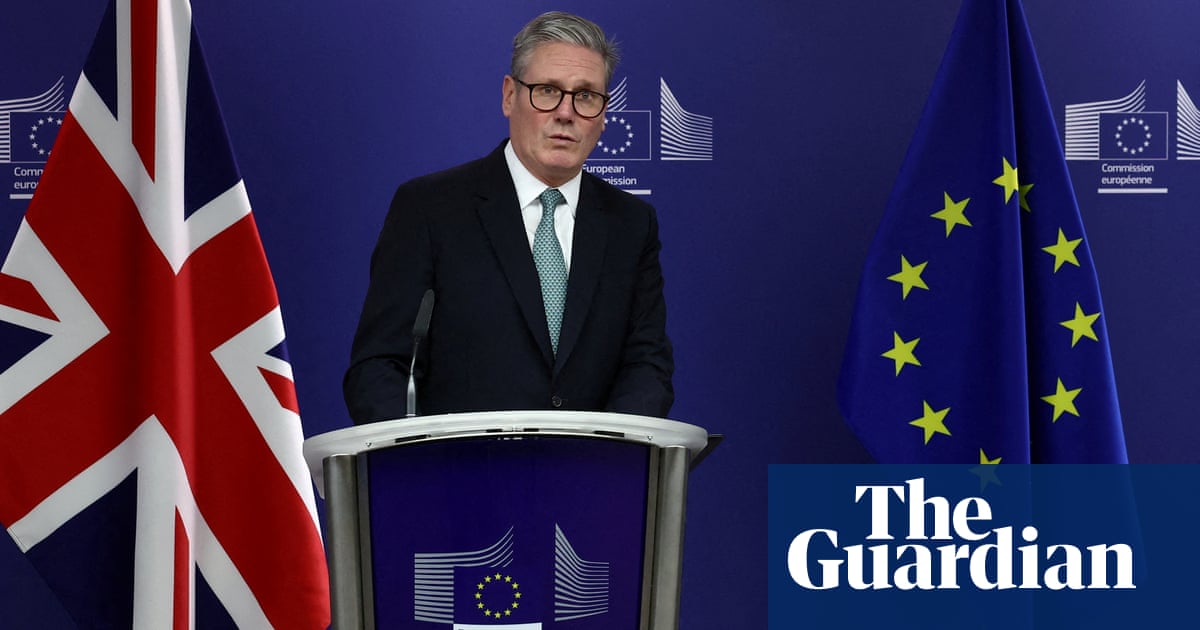
The European Commission is taking the British government to court over alleged violations of the rights of EU citizens in the UK, a decision that casts a cloud over Keir Starmer’s attempted post-Brexit reset.
The commission announced on Monday that it was referring the government to the European court of justice for alleged failure to protect the rights of EU citizens in the UK at the end of 2020 – after Britain’s formal exit from the union.
The commission said there were “several shortcomings” in the UK’s implementation of European law that continued to affect EU nationals in the UK with rights under the Brexit withdrawal agreement.
Although similar complaints around EU citizens’ rights date back to 2011, the latest legal action began in May 2020 with a request to the UK to provide more information. It came amid intense scrutiny in Brussels over protecting the post-Brexit rights of at least 3.5 million EU citizens in the UK after Brexit.
A growing number of cases have come to light of EU citizens denied entry at the UK border or subject to deportation orders, after they return from holidays or family visits abroad.
The UK’s Independent Monitoring Authority last month wrote to the Home Office raising concerns about the “certificate of application”, which is intended to give EU citizens evidence to show employers, landlords and the NHS that they are entitled to be in the country while their post-Brexit status is pending.
Responding to the commission decision, a government spokesperson said: “These cases relate to issues from when the UK was an EU member state and during the transition period. We are not going to comment further on legal proceedings.”
While officials sought to downplay the EU legal action, the case could cause friction. The EU has said it will only move ahead with new agreements once the UK has shown “full and faithful implementation” of existing ones.
Starmer is attempting to reset the UK’s relationship with the EU after years of tensions over Brexit. The chancellor, Rachel Reeves, and the foreign secretary, David Lammy, are among the ministers that have had well-received meetings with their EU counterparts, although detailed talks on new agreements are yet to begin.
Despite warm words on both sides, the EU has not moved beyond the red lines intended to protect the single market that were conceived at the start of the Brexit negotiations. A “significant further reduction of trade frictions” would be in the EU’s interest, but would require the UK to join the single market and/or customs union, according to an internal EU document seen by the Guardian.
after newsletter promotion
The UK government has ruled out joining the single market and customs union.
The document, a summary of diplomatic discussions in Brussels on EU-UK relations over the autumn, also reveals that EU countries are insisting on a fisheries deal, before agreements in other areas. The EU-UK fisheries deal – agreed as part of the wider trade talks in December 2020 – has to be renewed by June 2026. A reset between the union and the UK “is only credible if it is based on an early understanding” on fisheries, states the EU document.
The two sides are also on a collision course over a youth mobility scheme, which the EU sees as essential to any successful rapprochement. The EU would like to create “a youth experience scheme” that allows young people aged 18 to 30 to work, travel and study anywhere in the UK and 27 member states for a few years.
The British government is opposed to any scheme that may increase inward migration without being targeted at specialist skills.
Source: theguardian.com


















